Health Goals to Make for 2025
As we look toward 2025, setting intentional health goals is more critical than ever. With the ever-evolving landscape of healthcare and wellness, understanding and implementing key strategies for maintaining and improving health can make a significant difference in our lives. From physical fitness to mental resilience, the actions we take today can lead to a more vibrant and fulfilling tomorrow. Below, discover how to craft realistic health goals that will ensure your longevity and well-being for the years ahead. Keep reading to find your path to a healthier future.
Prioritizing Mental Well-being in Your Health Strategy
In the pursuit of health goals, mental wellness often takes a backseat to physical concerns. Acknowledging the need for professional help is a sign of strength, and therapy or counseling should be considered just as vital as a workout regimen. The stigma surrounding mental health care is steadily being dismantled, paving the way for more open conversations and acceptance of mental health as part of overall well-being. Even routine healthcare decisions, such as getting dental implants, can contribute to improved self-confidence and mental well-being, reinforcing the connection between physical and emotional health.
Scheduling regular mental health breaks akin to physical rest days allows for recovery and reflection—a necessary practice to prevent burnout. In 2025, look forward to a work-life balance that prioritizes mental rest as an essential element of daily living, and not merely an afterthought or luxury.
Incorporating Sustainable Dietary Changes for Long-Term Wellness

Sustainable dietary changes are the cornerstone of long-term health. Rather than engaging in fad diets that promise quick results but are often unbalanced and hard to maintain, consider adopting eating habits that you can sustain over time. This can include increasing your intake of whole foods, reducing processed foods, and cooking at home more frequently to better control what goes into your meals.
Understanding that each person’s nutrition needs are unique is the first step in tailoring a diet that suits your lifestyle and health goals. Work with a qualified nutritionist to create a plan that satisfies your body’s requirements while also aligning with any ethical or environmental values you may want to uphold.
Embracing Technological Innovations for Enhanced Fitness Monitoring
The digital age has introduced an array of technologies to help us track and improve our health. Wearable devices such as fitness trackers and smartwatches have become increasingly sophisticated, offering insights not only into our physical activity but also sleep patterns, heart rate, and even stress levels. In 2025, these gadgets are likely to be even more advanced, providing individuals with a comprehensive view of their health status.
Additionally, fitness and health apps have proliferated, offering personalized recommendations, virtual coaching, and community engagement. These resources can be integral in meeting your health goals, as they provide direction and measurable outcomes. Remember to vet these resources for credibility and ensure that they align with your specific needs and health objectives.
Altogether, the path to a healthier 2025 is paved with holistic, sustainable practices and the support of innovative technologies and robust communities. By anchoring your goals in achievable steps, prioritizing mental well-being, adjusting your diet, utilizing health tracking devices wisely, and seeking out supportive networks, you set the stage for a well-rounded health journey. Overall, these strategies provide a solid blueprint for wellness that can enhance the quality of your life in the years to come.
















